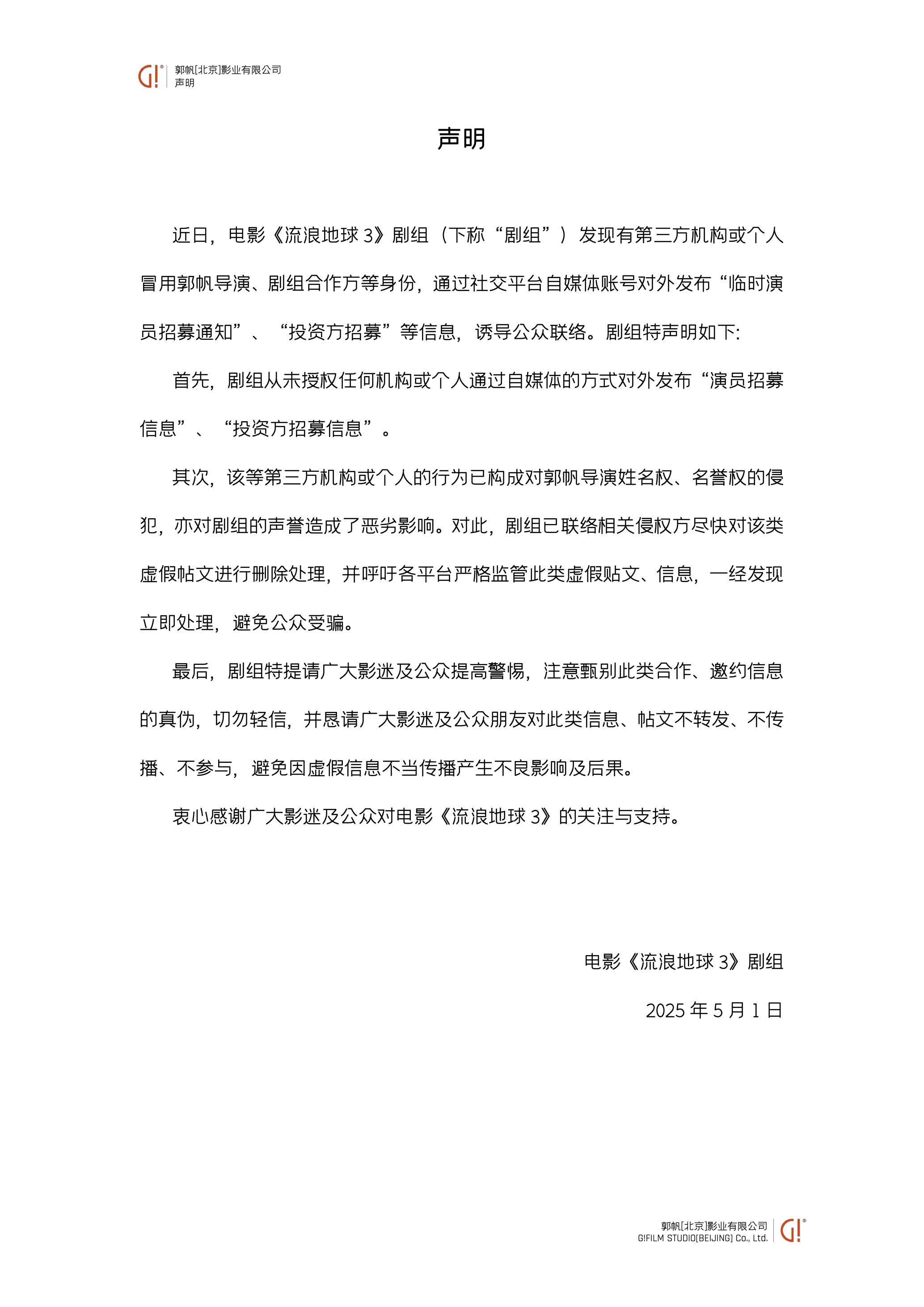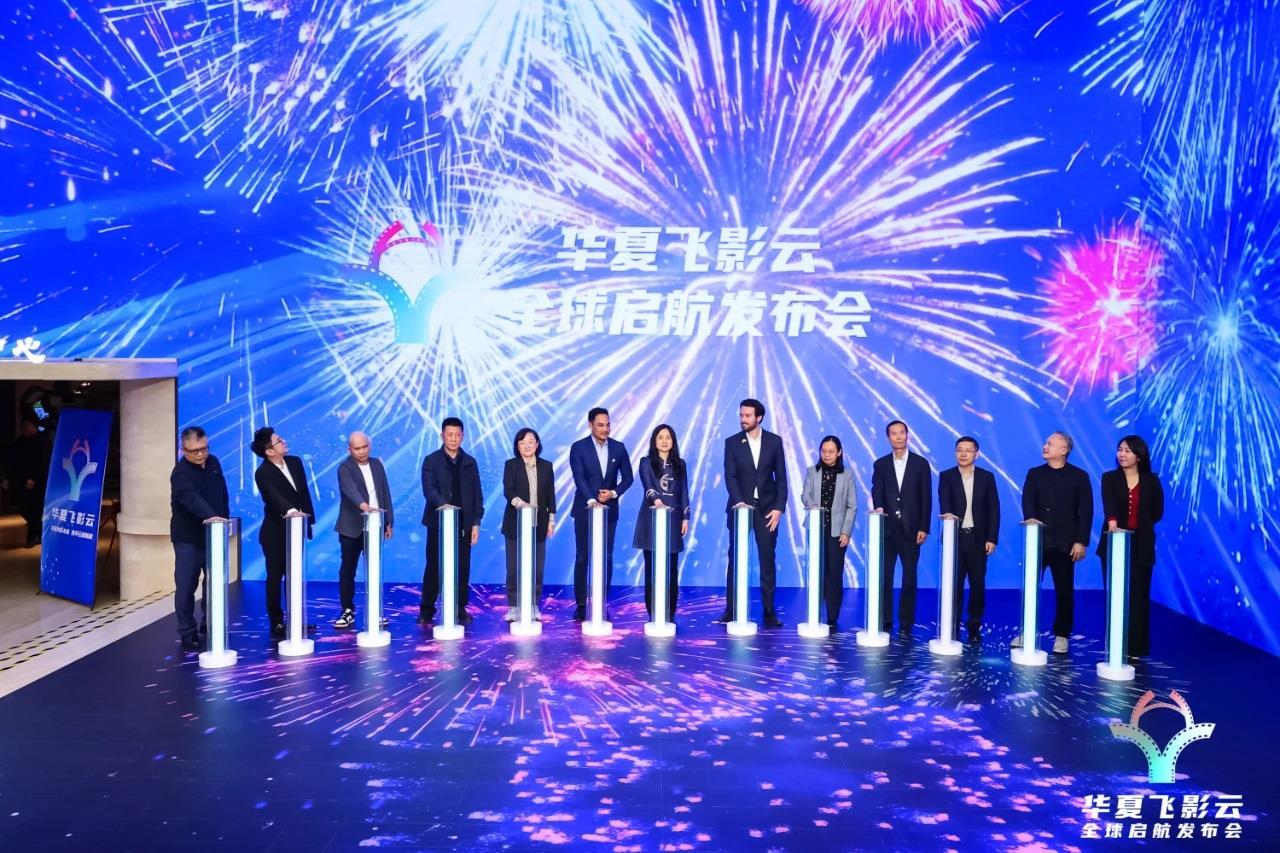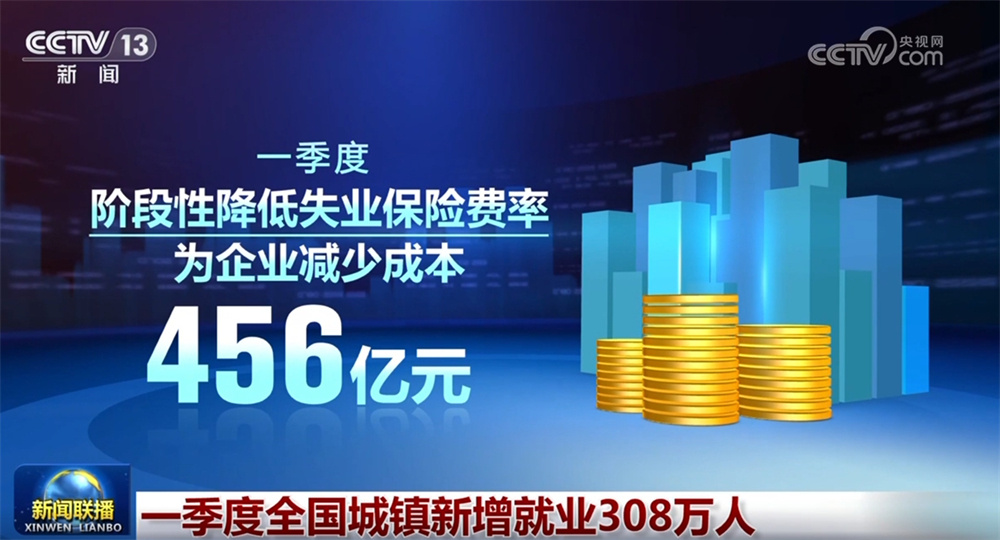Rethinking the consequences of U.S. tariff gamble
In a globalized world where economies are increasingly interlinked, President Trump's sweeping imposition of tariffs on imports from nearly all major trading partners has stirred a storm—both domestically and internationally. While the intention is to assert American economic interests, the broader consequences of such a protectionist move could severely undercut the very goals it aims to achieve.。
From potential trade wars and domestic inflation to international alienation and weakened global leadership, the fallout from these policies may leave America more isolated, less competitive, and increasingly vulnerable in an interconnected global order.。

Tariffs in theory vs. reality。

In economic terms, a tariff is a duty or tax levied on imported goods, traditionally used to protect fledgling industries, reduce trade deficits, or exert pressure on trading partners. Historically, countries like the U.S. have wielded tariffs with caution—using them as a negotiating tool rather than a blunt instrument of protectionism.。

But today's context is different. The U.S. is no longer a manufacturing-heavy economy. Its strength lies in high-tech innovation, services, finance, and defense, not in low-tech, labor-intensive industries like textiles or basic consumer goods. Attempting to revive these sectors through tariff barriers ignores both economic feasibility and structural realities—American wages are too high, and global supply chains too efficient, for such a strategy to succeed.。
A unilateral decision with limited consensus。
Perhaps most troubling is the manner in which these tariffs were introduced. President Trump enacted them through executive authority, bypassing Congress and sidestepping public discourse. Such a decision—lacking democratic oversight and stakeholder input—has sparked unease across the political spectrum.。
Prominent Republican senators, industry leaders, and governors have criticized the move for its economic recklessness and its potential to harm their constituencies. Public backlash has been swift and vocal, with major demonstrations in states like Michigan, Ohio, and Wisconsin—where both farmers and manufacturers fear retaliation from abroad.。
Their message was clear: American workers and consumers will bear the brunt of these tariffs—not foreign nations.。
Who really pays for tariffs?
Despite political rhetoric, tariffs are not paid by foreign exporters. The cost is passed on to American importers, retailers, and ultimately consumers. Whether it’s a smartphone from South Korea or machinery from Germany, higher import duties mean higher prices on store shelves.。
A recent analysis by the U.S. Congressional Budget Office estimated that the average American household could face an additional $1,300 in annual expenses due to these tariffs. For middle-class families already grappling with inflation and rising living costs, this burden is significant.。
Moreover, small businesses—which form the backbone of the U.S. economy—are disproportionately affected. Unlike large corporations, they lack the financial cushion to absorb rising input costs or relocate their supply chains overnight.。
Global reaction: Allies alarmed, rivals energized。
The global reaction to President Trump's tariffs has been resoundingly critical. Traditional U.S. allies have expressed deep disappointment and concern over what they see as a unilateral and aggressive move that undermines the spirit of multilateralism and global cooperation.。
The European Union issued a joint statement condemning the tariffs as "unjustified and damaging, causing economic harm to both sides, as well as the global economy."。
Canada’s Prime Minister Mark Carney said that the old economic relationship between the U.S. and Canada is “over,” vowing that Ottawa will respond “forcefully.”。
The Chinese government strongly condemns and firmly opposes U.S. abuse of tariffs.。
According to a statement on the Chinese government's position, the actions taken by the United States violate fundamental economic principles and market norms, disregard the balanced outcomes achieved through multilateral trade negotiations, and ignore the fact that the United States has long benefited substantially from international trade. Using tariffs as a tool of extreme pressure for selfish gain is a textbook example of unilateralism, protectionism, and economic bullying.。
Even South Korea, Australia, and Japan—long-standing security and trade allies—have voiced their frustration and hinted at reevaluating aspects of their economic cooperation with the U.S.。
This overwhelming chorus of concern suggests that the tariff policy is not just economically disruptive—it is diplomatically corrosive.。
Global retaliation: A domino effect。
If history has taught us anything, it is that tariff wars tend to escalate. In response to U.S. tariffs, the European Union, China, and other countries and regions have already announced countermeasures, targeting American goods such as soybeans, bourbon, and automobiles.。
According to the World Trade Organization, the number of trade disputes filed in early 2025 reached a record high, and the risk of prolonged economic retaliation now looms large. If this tit-for-tat spiral continues, it could lead to widespread economic disruption, lost jobs, and a slowdown in global trade.。
The World Bank warned that U.S. across-the-board tariffs of 10% could reduce already lackluster global economic growth of 2.7% in 2025 by 0.3 percentage point if America's trading partners retaliate with tariffs of their own. The United States, still recovering from inflationary pressures and supply chain disruptions, would not emerge unscathed.。
Undermining U.S. alliances and global influence。
Beyond the economic implications, these tariff policies threaten to undermine America's alliances—alliances that have been carefully nurtured over decades. Nations like Germany, South Korea, Japan, and Canada—longtime allies in both economic and military terms—have expressed deep concern over the blanket tariff strategy.。
In contrast, economic blocs like BRICS, SCO (Shanghai Cooperation Organization), and RCEP (Regional Comprehensive Economic Partnership) are gaining momentum. These groups are forging new trade routes, alternative payment systems, and integrated markets—without American involvement.。
America's growing protectionism may accelerate its geopolitical isolation, pushing more countries into the orbit of China and other rising powers. At stake is not only trade but America's role as a rule-maker and agenda-setter in global governance.。
Rethinking the path forward。
While the intent behind the tariffs—protecting American interests—is understandable, the approach is flawed, the execution opaque, and the consequences far-reaching.。
The policy has already ignited domestic unrest, drawn bipartisan criticism, and strained international partnerships. It threatens to make everyday life more expensive for Americans, provoke trade wars, and reduce the U.S.'s global relevance.。
Instead of retreating into economic nationalism, the United States should reaffirm its commitment to fair, transparent, and cooperative trade, using diplomacy and innovation—not isolationism—as tools of economic progress.。
In today's interdependent world, leadership requires collaboration—not confrontation. America must choose wisely.。
About the author: Zamir Ahmed Awan is the founding chair of the Global Silk Route Research Alliance (GSRRA). He is a sinologist and former diplomat. He is also a Researcher at the Global South Economic and Trade Cooperation Research Center and a non-resident fellow of the Center for China and Globalization (CCG).。
(责任编辑:综合)
-
 新华社北京4月9日电记者成欣、刘杨)外交部发言人林剑9日表明,不管国际风云怎么变幻,我国经济都有厚实的根底完成稳定开展,也有足够的动力破浪前行。我国有才能、有底气应对各种危险应战。当日例行记者会上,有
...[详细]
新华社北京4月9日电记者成欣、刘杨)外交部发言人林剑9日表明,不管国际风云怎么变幻,我国经济都有厚实的根底完成稳定开展,也有足够的动力破浪前行。我国有才能、有底气应对各种危险应战。当日例行记者会上,有
...[详细]
-
 5月1日,电影漂泊地球官方微博发布声明:近来,电影《漂泊地球3》剧组下称“剧组”)发现有第三方组织或个人。冒用郭帆导演、剧组协作方等身份,经过交际渠道自媒体账号对外发布“临时艺人招募告诉”“投资方招募
...[详细]
5月1日,电影漂泊地球官方微博发布声明:近来,电影《漂泊地球3》剧组下称“剧组”)发现有第三方组织或个人。冒用郭帆导演、剧组协作方等身份,经过交际渠道自媒体账号对外发布“临时艺人招募告诉”“投资方招募
...[详细]
-
 央广网哈尔滨5月1日音讯记者李雪 张瀚予 实习记者赵硕晗)当旧日的老洋房变身成网红打卡地,当传统的伴手礼遇上AR高科技,哈尔滨营建多个旅行消费新场景,用百年老街翻开穿越时空的大门。中心大街肖克院子央广
...[详细]
央广网哈尔滨5月1日音讯记者李雪 张瀚予 实习记者赵硕晗)当旧日的老洋房变身成网红打卡地,当传统的伴手礼遇上AR高科技,哈尔滨营建多个旅行消费新场景,用百年老街翻开穿越时空的大门。中心大街肖克院子央广
...[详细]
-
 “五一”假日,除了郊游出游、亲朋团聚,在江苏连云港,不少市民还挑选走进电影院,沉浸在精彩纷呈的电影国际中,享用特别的假日韶光。假日伊始,在江苏连云港的影城大厅,各类“五一”档电影的宣扬海报和预告片循环
...[详细]
“五一”假日,除了郊游出游、亲朋团聚,在江苏连云港,不少市民还挑选走进电影院,沉浸在精彩纷呈的电影国际中,享用特别的假日韶光。假日伊始,在江苏连云港的影城大厅,各类“五一”档电影的宣扬海报和预告片循环
...[详细]
-
 一部电影从复制制造完结到送达影院,需求多长时刻?曩昔,这取决于硬盘快递的时刻,偏远地区影院的观众因气候等要素或许面对更长等候。现在,数字技能的改造打破时空壁垒,让全国各地的观众都能在第一时刻欣赏最新上
...[详细]
一部电影从复制制造完结到送达影院,需求多长时刻?曩昔,这取决于硬盘快递的时刻,偏远地区影院的观众因气候等要素或许面对更长等候。现在,数字技能的改造打破时空壁垒,让全国各地的观众都能在第一时刻欣赏最新上
...[详细]
-
专项整治,势在必行——合肥市教育局党委副书记李仲生来五十中天鹅湖校区查看督导
 12月2日上午,合肥市教育局党委副书记李仲生一行来到合肥市五十中学天鹅湖教育集团天鹅湖校区监察辅导非机动车拆篷专项整治作业,合肥市五十中学天鹅湖教育集团总校长靳文,合肥市五十中学天鹅湖教育集团天鹅湖校
...[详细]
12月2日上午,合肥市教育局党委副书记李仲生一行来到合肥市五十中学天鹅湖教育集团天鹅湖校区监察辅导非机动车拆篷专项整治作业,合肥市五十中学天鹅湖教育集团总校长靳文,合肥市五十中学天鹅湖教育集团天鹅湖校
...[详细]
-
 交通银行信誉减值丢失飙升,财物质量不及同行,成绩下滑,内控受质疑,各种压力扑面而来,怎么包围成为难题!“骗贷”风波不断,这次交通银行中招了!近来媒体报道,安徽省前城出资股份有限
...[详细]
交通银行信誉减值丢失飙升,财物质量不及同行,成绩下滑,内控受质疑,各种压力扑面而来,怎么包围成为难题!“骗贷”风波不断,这次交通银行中招了!近来媒体报道,安徽省前城出资股份有限
...[详细]
-
 极目新闻记者 戎钰。 5月1日,你去电影院“凑”了五一档的热烈吗?据灯塔专业版数据,到5月1日17时24分,2025年五一档新片含重映)总票房含点映及预售)打破2亿,马丽主演的女人勉励电影《水饺皇后》
...[详细]
极目新闻记者 戎钰。 5月1日,你去电影院“凑”了五一档的热烈吗?据灯塔专业版数据,到5月1日17时24分,2025年五一档新片含重映)总票房含点映及预售)打破2亿,马丽主演的女人勉励电影《水饺皇后》
...[详细]
-
 湖北日报讯记者文凯、通讯员向沁雪、陈斌)4月10日,运行了32年的松宜铁路上,湖北省首台完结“油改电”晋级的新能源动力牵引机车正式投入运营。当天上午10时,伴随着洪亮的鸣笛声,漆上新绿色、换上新能源动
...[详细]
湖北日报讯记者文凯、通讯员向沁雪、陈斌)4月10日,运行了32年的松宜铁路上,湖北省首台完结“油改电”晋级的新能源动力牵引机车正式投入运营。当天上午10时,伴随着洪亮的鸣笛声,漆上新绿色、换上新能源动
...[详细]
-
 11月6日上午,高速乐活荟盛大开街。作为一所以运动体MALL+邻里中心为中心定位,会聚餐饮、文娱、亲子、体育、休闲、购物为一体的商业中心。高速乐活荟的开街会为滨湖甚至合肥居民带来怎样的日子新体会呢?今
...[详细]
11月6日上午,高速乐活荟盛大开街。作为一所以运动体MALL+邻里中心为中心定位,会聚餐饮、文娱、亲子、体育、休闲、购物为一体的商业中心。高速乐活荟的开街会为滨湖甚至合肥居民带来怎样的日子新体会呢?今
...[详细]

 新华全媒+|完善方针机制 唱好促进工作“开场戏”
新华全媒+|完善方针机制 唱好促进工作“开场戏” 308万人、91万亿元、万亿千瓦时……从数据透视我国经济发展耐性微弱
308万人、91万亿元、万亿千瓦时……从数据透视我国经济发展耐性微弱 萨瓦迪卡!龟峰山迎来首个泰国旅行团
萨瓦迪卡!龟峰山迎来首个泰国旅行团 兴业银行荣获IFF“2021全球绿色金融奖”
兴业银行荣获IFF“2021全球绿色金融奖” “直接向救助车开枪” 以军被曝故意突击加沙救助车队
“直接向救助车开枪” 以军被曝故意突击加沙救助车队